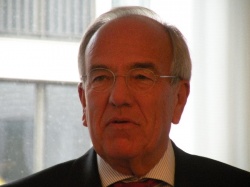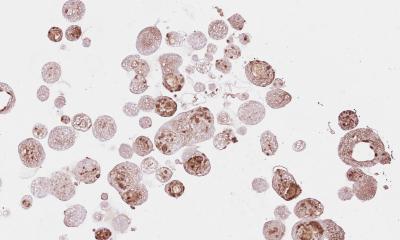The 1st European Forum on Oncology
Unity is strength: Participants urge greater European collaboration to tackle cancer
Across Europe an estimated 3.2 million new cases and 1.7 million deaths occur annually. By intensified cooperation in research, diagnosis and treatment, enormous advantages can be achieved. To progress the integration of knowledge and skills in this field, the first European Forum on Oncology was held this October in Berlin.


Initiated by WISO S.E. Consulting and coordinated by the Health City Berlin association, the Forum drew oncology experts, researchers and agents of policy and the health industry.
In Europe, basic organisational conditions and the quality of early recognition, diagnosis and therapy of cancer is still diverging. ‘For example, the general survival rate of cancer patients in Germany is lower than in the Scandinavian countries,’ said Ulf Fink, the first European Forum President, Founder and Shareholder of the WISO-Group and Chairman of Health City Berlin. Basic research is still very fragmented, he cautioned, the speed of transfer to a hospital takes too long. ‘To shorten the run, we need to benefit better from an already existing infrastructure in Europe, to share expertise and jointly develop and implement quality criteria.’
Lecturing on research, Professor Otmar Wiestler, Chair of the German Cancer Research Centre in Heidelberg, gave an overview of cancer research in Europe, focused on four essential and promising areas, stem cell research, genomics, immunotherapy and medical physics, finally turning attention to the great importance of preventive oncology -- long disregarded, although around 50% of patients already had metastases when cancer was diagnosed, he said.
For many of these, the latest treatments failed due to the late stage of disease. Recommending improvement in the early detection of risk factors in healthy people, he then referred to two big epidemiological projects that aim to identify cancer risk factors by collecting data of healthy: the population-based SHIP-Study of health in Pomerania and prospective Helmholtz Cohort organised by Helmholtz Health Research. The two-day forum attracted some 120 participants and 50 speakers. Along with cancerresearch, diagnosis, treatment and prevention, the programme organised by scientific advisor Professor Peter Schlag, director of the Charité Comprehensive Cancer Centre, Berlin, included an overview of the current status and prospects of EU political coordination.
Before closing, participants introduced the ‘Berlin Memorandum’, calling for greater international cooperation among all leading institutions - from research centres to comprehensive cancer centres and healthcare policy directives. This has been submitted to key players in oncology and healthcare policy makers at EU level.
29.12.2010






